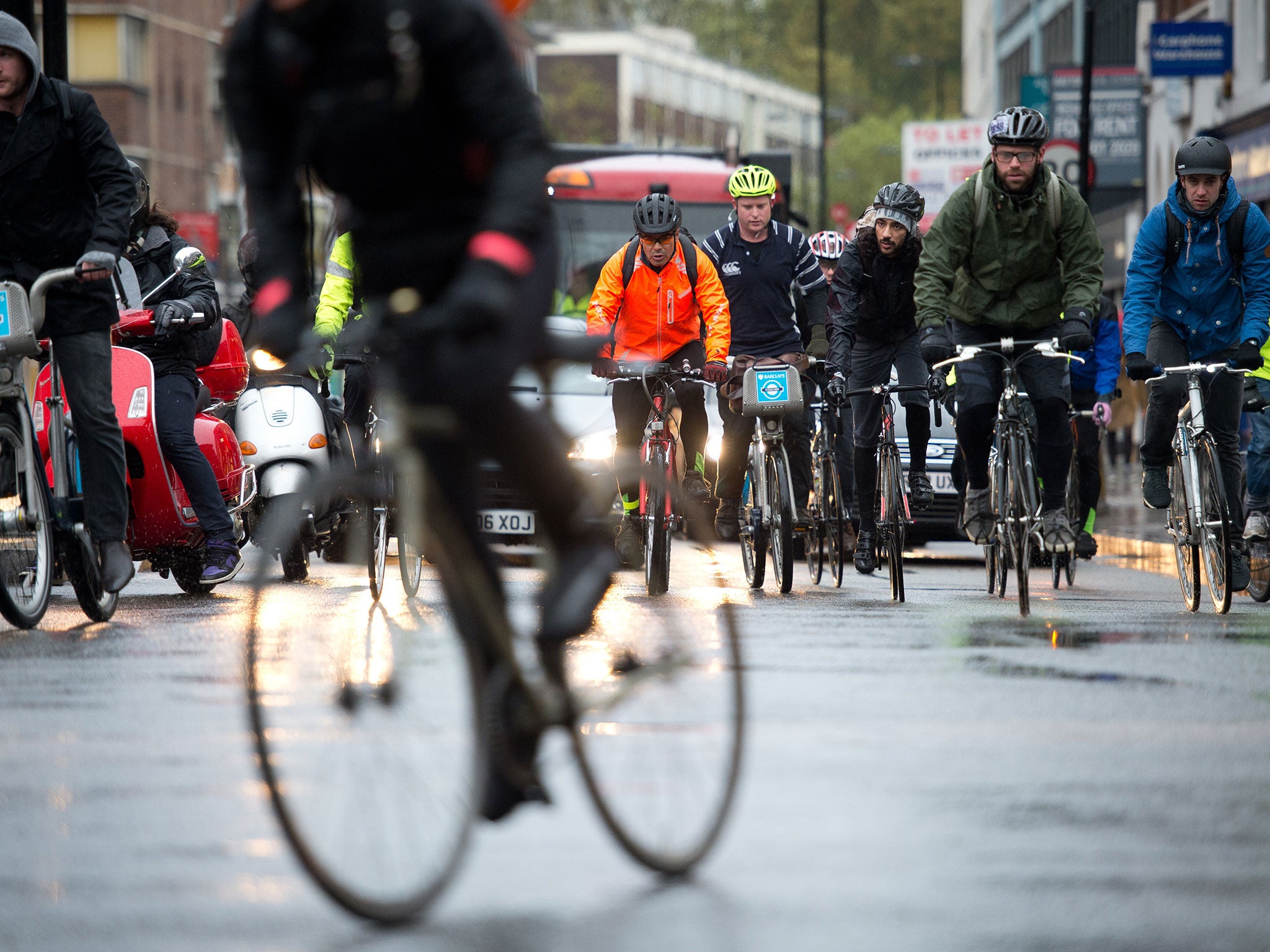Transport Committee urges Government to make it easier for councils to bring in lower speed limits to make roads safer - and boost cycling spending
The report urges the Government to reach a cycling budget of £10 per head of population by 2020

The Government needs to make it “easier and cheaper” for councils to bring in lower speed limits to reduce the number of cyclists killed Britain’s road, an influential group of MPs has said.
The call for more 20mph speed limits by the Transport Select Committee was accompanied by a demand for a five-fold increase in cycling infrastructure spending to cut casualties.
The policy recommendations come in a major new report into cycling safety released today. It argues for a “cultural change” to ease the tensions between motorists and cyclists and calls for the appointment of a “cycling tsar” to coordinate policy across government.
The report “urges” the Government to reach a cycling budget of £10 per head of population by 2020, compared to the current figure of £2 per head.
“Cycling needs to be seen as an essential part of transport policy and there needs to be a long-term sustainable budget to go with this,” Louise Ellman MP, chair of the committee, told The Independent.
“This means there also needs to be someone in government that has a remit looking at cycling policy across departments.”
She added: “This is not just a problem of a few roundabouts in London. This is a national issue and I urge the Government to take action.”
According to Ms Ellman, any “cycling tsar” needs to be a “Government Minister with clout” who can look at “road design, training, speed limits, education, health policy and HGV regulation”.
Last year 109 cyclists were killed on roads in England, Scotland and Wales, with more than 3,000 serious injuries. The number of deaths was an 8 per cent fall on 2012, but campaigners warned that total cyclist casualties were up 18 per cent compared to the average for 2005 to 2009.
Worryingly for campaigners, today’s report also stated that there is only “limited evidence of a widespread culture that is supportive of cyclists as road users”. This is despite Prime Minister David Cameron calling for a “cycling revolution” following the widespread success of the sport during the Olympics, the Paralympics and the Tour de France.
The report’s major policy recommendation is that Government should support local authorities to make it “easier and cheaper for them to introduce 20mph speed limits in high-risk areas”.
Ms Ellman said: “We see clear information that where 20mph zones are implemented we see fewer accidents, the pace of travel is slowed and therefore road users are more aware of each other.”
Channel 4 News presenter Jon Snow, who is president of the national cycling charity CTC, said: “The positive recommendations made by the select committee are good news.
"But we need out Government to go one step further and make the commitment to at least £10 per head funding to make safe cycling in the UK with immediate effect, not six years from now.”
A spokesperson for the AA told The Independent: “We have no problem with 20mph speed limits in residential areas as long as residents are happy with them.”
Despite the report being broadly welcomed by safety campaigners, Hugh Bladon, a founder of the Alliance of British Drivers, told The Independent: “Quite simply 20mph speed limits will increase the number of accidents.
"It’s a nonsensical policy as police cannot enforce it and you would need a million cameras if you want people to drive at 20mph, which nobody does. What you need is to get a grip on cyclist wearing things in their ears, ignoring the road behind them and listening to what they call music.”
Join our commenting forum
Join thought-provoking conversations, follow other Independent readers and see their replies
Comments